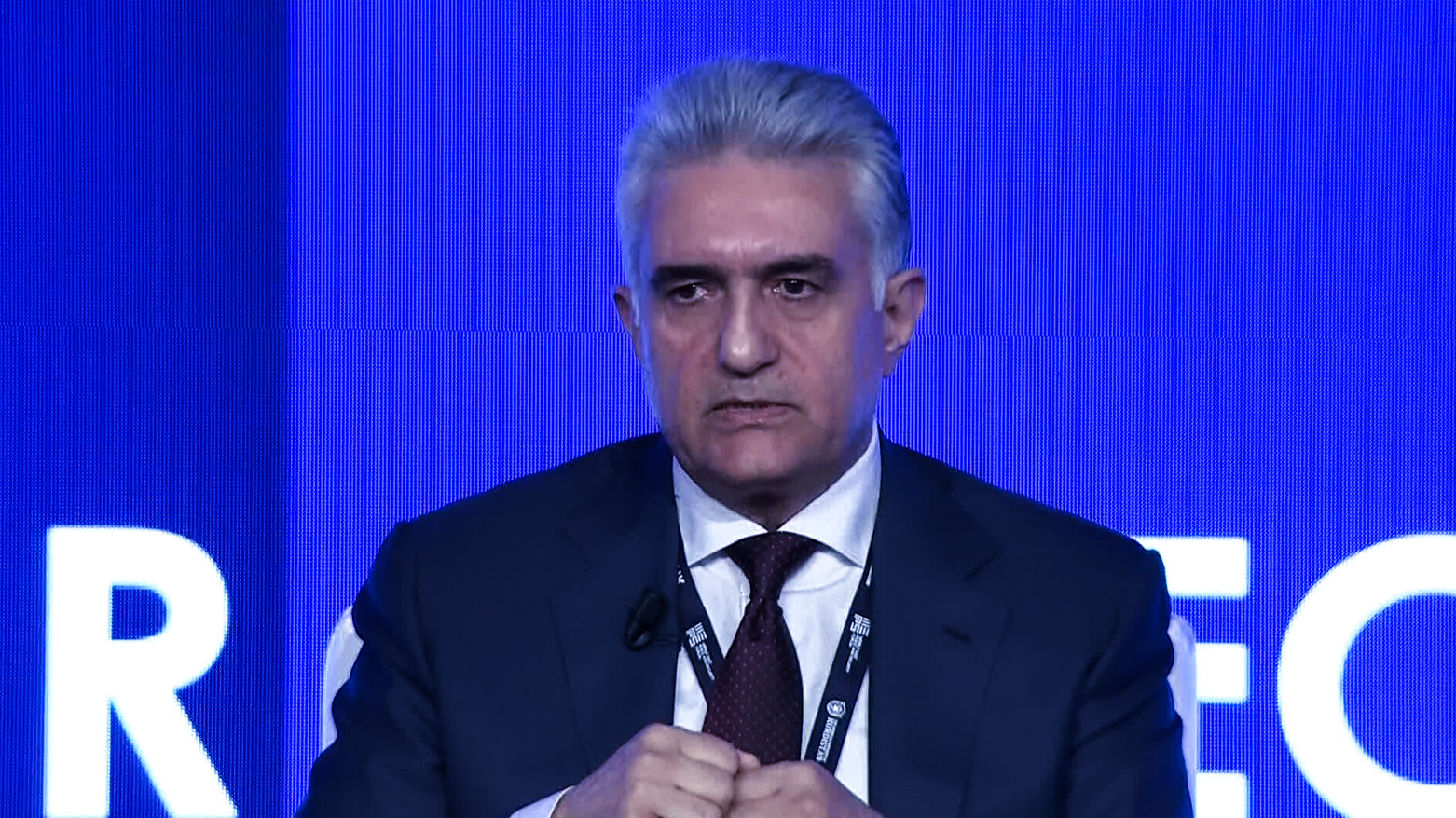Kurdistan Region Interior Minister Warns That Century-Old State Structures Continue to Fuel Conflict in the Middle East
Rebar Ahmed warns that without addressing historic injustices—especially the unresolved Kurdish question—lasting peace in Iraq and Syria will remain out of reach.

ERBIL (Kurdistan24) — Kurdistan Region Interior Minister Rebar Ahmed on Wednesday said that deep-rooted structural and historical injustices—dating back to the Sykes-Picot Agreement and reinforced through outdated systems of governance—remain the central obstacles to achieving lasting peace in Iraq, Syria, and the wider Middle East. Speaking during the Middle East Peace and Security Forum (MEPS 2025), he warned that without addressing the core causes of conflict, “peace cannot take root.”
In a sweeping historical assessment, Ahmed said that regional instability was not accidental but rather the product of “imposed borders and imposed states” created by outside powers without consulting the peoples of the region.
Referencing the 1645 European model of the nation-state and the later Sykes-Picot Agreement, he argued that these frameworks were “never designed for the social, cultural, or national realities of the Middle East,” especially for nations like the Kurds, whose aspirations were ignored.
Ahmed noted that early state-building in Iraq and Syria was executed under the control of that era's super powers and empires that had little interest in inclusive or modern governance.
As a result, he said, when modern states like Iraq and Syria were formed, their foundational structures were already “deeply flawed, exclusionary, and disconnected from the will of their peoples.”
Kurdish Rights Ignored Since the Beginning
The minister stressed that one of the greatest injustices embedded in this legacy was the deliberate exclusion of the Kurdish question.
“No one asked what the Kurds wanted, where they should live, or how they wished to govern themselves,” he said.
He argued that this erasure laid the groundwork for decades of persecution, from genocide and Anfal to chemical attacks and systematic denial of identity.
He added that these failures produced a culture of governance “rooted in dominance, not coexistence,” still visible today in both Iraq and Syria.
Iraq’s Crisis: A Problem of Governance Culture, Not Only Politics
According to Ahmed, the absence of peace in Iraq and Syria stems from a dominant mentality that prioritizes the interests of one group, sect, or ideology over the rest.
“When a system elevates one side above others, peace becomes impossible,” he said.
He contrasted this with the post-1991 experience of the Kurdistan Region, where political leadership made “a conscious decision to build a society on peaceful coexistence,” ensuring equality under the law for all ethnic and religious communities.
The success of the Kurdistan Region, he argued, is rooted not merely in political arrangements but in “a belief system that values peace and living together.”
Post-2003 Iraq: Change in Leaders, but Not in the Mindset
Ahmed said that while the U.S. and the international community helped free Iraq from a brutal regime, the deeper culture of governance did not change.
“Those who now hold power did not struggle to build peace or democratic institutions. Before 2003, successive regimes maintained their rule through war and bloodshed. That mentality survived the transition,” he argued.
He criticized Baghdad for failing to acknowledge or apologize for crimes committed against the Kurds or other Iraqi components, saying: “Has the Iraqi government ever apologized for genocide, Anfal, or chemical attacks? Has anyone taken responsibility for using state institutions to carry out these atrocities? The answer is no. Without accountability, peace cannot be built.”
A Warning for the Future: Iraq and Syria at a Crossroads
Ahmed cautioned that Iraq and Syria remain in grave danger because their underlying crises—especially the Kurdish question—have not been resolved. Recognition of Kurdish rights, he said, is essential not only for justice but for regional peace.
He concluded with a stark assessment:
“As long as the problems of all peoples in the region remain unresolved, peace will not come to the Middle East.”
MEPS has, in recent years, emerged as one of the Middle East’s most important platforms for addressing political, security, economic, and governance challenges. Organized annually at the American University of Kurdistan in Duhok province, in the Kurdistan Region, the forum attracts heads of state, prime ministers, ministers, diplomats, global experts, policymakers, academics, and business leaders from around the world.
The conference is known for its open, in-depth discussions on regional stability, counterterrorism coordination, economic diversification, climate challenges, energy transitions, and the future of partnerships across the Middle East.
It also serves as a critical venue for examining Iraq’s evolving political dynamics and the Kurdistan Region’s role as a reliable and stabilizing partner.
Beyond its diplomatic impact, MEPS has become a major vehicle for enhancing the Kurdistan Region’s global profile. By consistently convening high-level leaders and experts, the forum showcases Kurdistan as a secure, open, and dynamic environment capable of hosting world-class policy discussions, while simultaneously promoting investment opportunities and cultural visibility.
At this forum, participants explore new avenues for cooperation in security, economic integration, post-conflict stabilization, and regional development — reaffirming the Kurdistan Region’s central role in shaping future dialogues across the Middle East.